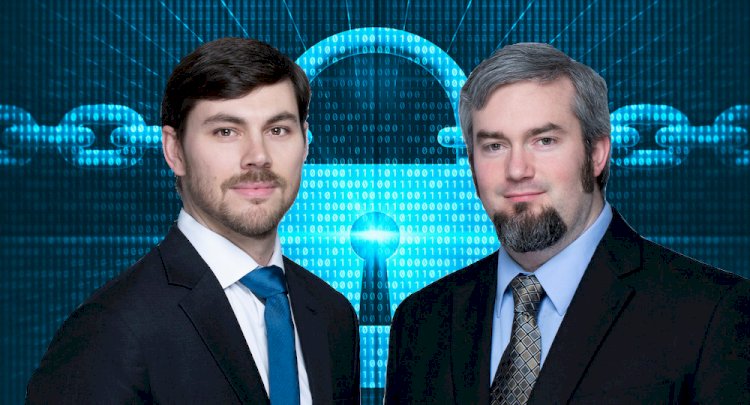No-password crypto vault Anchorage gets Visa funding of $40 million.
Most of the blockchain is focused on cryptocurrencies and the exchanges where you buy and sell them, there is a second-order of critical infrastructure startups that are emerging. As companies like Anchorage could make Bitcoin, Ether, Libra and more like just not objects of speculation or domain of experts but they can safely function as elements of the new world economy.

Together with Andreessen Horowitz, Visa is funding a big round for Facebook Libra Association member Anchorage’s blockchain security system. Instead of passwords, that are prone to be stolen, Anchorage requires cryptocurrency withdrawals approved by the client’s other employees. It uses both human and AI review of biometrics and more so to validate the transactions before executed offering end-to-end insurance coverage.
Led by Blockchain Capital and joined by Visa and Andreessen Horowitz, this new-age approach to cryptocurrency protection has attracted a $40 million series B for Anchorage. Demonstrating extraordinary momentum for security startup, it adds to Anchorage’s $17 million Series A that Andreessen led just six months ago.
The Anchorage co-founder and president Diogo Monica quips, “our work as a custodian is focused on building financial plumbing that other companies depend on for the operations to run smoothly. We have always looked at Visa as a model in this regard.”
“Always being on the vanguard of financial infrastructure, Visa was fintech even before the term existed. Its investment in Anchorage helps not only our company but to the industry validating the entire ecosystem and recognizing that crypto plays a key role in the future of global finance.”
A popular method of securing Bitcoin, Ether and other tokens is cold storage, which is holding assets in computers not connected to the internet. A problem faced by this type of storage is that it can prevent owners from participating in the governance of certain cryptocurrency where the votes are based on their holdings or earning dividends. Helping clients get the most out of their assets similar to capturing returns from staking and inflation or joining in on-chain governance anchorage is purposefully designed to permit this kind of participation.
Three of the founding members of Libra Association that govern the new Facebook incubated cryptocurrency, Anchorage, Visa, and Andreessen Horowitz are responsible for ensuring the stable coin stays secure. Facebook is gaining on building its custodial wallet called Calibra for the users while other members and companies look forward to diving into the ecosystem that needs ways to protect Libra stockpiles.
On the day Libra was revealed, Monica wrote “ Libra is the kind of asset Anchorage was created to hold. To enable asset holders so that they don’t face a trade-off between security and usability, the custody solution enables online participation with offline assets”. They are working to support all types of digital assets as the company believes that custodians shouldn’t dictate which coins their clients hold including securing Libra in the future.
The technology secured by Anchorage’s founders who engineered Dockers containers used by Microsoft as well as Square’s first encrypted card reader has been used already. With his future Anchorage co-founder, Nathan McCauley, who was working on anti-reverse-engineering tech for US military helped a company with the security which arose with losing a password to a $1 million cryptocurrency account recognized the need for a more idiot-proof take on asset protection.
As Monica notes,” with the best of modern security engineering and more advanced approach, generating and storing private keys in secure hardware so that they are never exposed at any point in the lifecycle, Anchorage eliminating human operations exposing the assets to risk.” Competing with the likes of crypto custody firms like BitGo, Ledger, Coinbase and Gemini, the startup is all set to surge ahead in the market.
Being cagey about what is revealed on how the transaction validation system worked last time while talking to Anchorage last time. Along with new funding, it is a little bit more secure about the market position and willing to share more.
As it does away with usernames, passwords, email addresses, and phone numbers completely, a hacker cant dumps your coins into their account stealing the private key or SIM porting your number to their phone. client whitelist devices held by employees use the Anchorage app to submit transactions. As an example in case, you propose selling $10 million worth of Bitcoin or transfer it to someone else as payment, a minimum of two-thirds of the designated co-workers needs to concur to form a quorum approving the transfer.
Firstly anchorage AI and human staff check for any suspicious signals indicating a hack in progress. Using behavioral analysis, biometric signals and network signals, the transaction is confirmed to be legitimate. Similarly, it happens that the same process goes down if you try adding a new whitelisted device or changes who has permission to do what.
The challenges posed by the users are scaling security to an ever-broadening range of digital assets each with their blockchain quirks and complex smart contracts. Keeping the coins safely in custody, the variables could expose assets to risk while in transit. Together with deeper pockets and Visa vote of confidence, Anchorage can solve these problems as clients queue up.
Concluding words
Most of the blockchain is focused on cryptocurrencies and the exchanges where you buy and sell them, there is a second-order of critical infrastructure startups that are emerging. As companies like Anchorage could make Bitcoin, Ether, Libra and more like just not objects of speculation or domain of experts but they can safely function as elements of the new world economy.
What's Your Reaction?




















